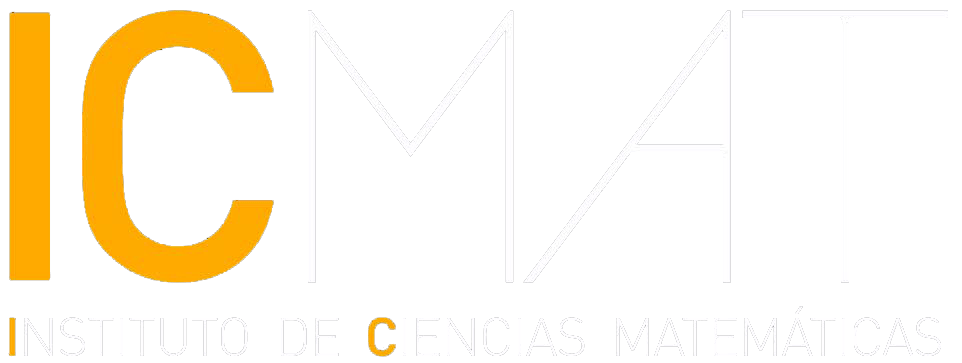
Project: “AMALFI: Adversarial Machine Learning, Methods, Computations and Applications to Malware, Fake News and Autonomous Vehicles.”
Principal Researcher: David Ríos Insua
Funding: 100.000 €
Dates: 01/05/2020 to 31/04/2022
Abstract: Machine learning and Big Data are fostering the emergence of new scientific paradigms and redefining our society in unknown ways: many processes and decisions, crtical for social development, are being automated with algorithms, which could be vulnerable to malicious attacks. Adversary machine learning develops robust and reliable algorithms against such attacks consisting in data manipulations. However, this research field is dominated by the game theoric paradigm, which requires hypotheses that are difficult to sustain in the typical application areas. This project pursues a new approach to this discipline based on the most realistic proposals of adversary risk analysis. The central aim is to provide new concepts and methods that lead to safer artificial intelligence systems. The applications include the detection of malicious software, the protection of driving algorithms in autonomous vehicles and the detection of fake news.
Project: “Safety Guarantees with data-driven controls for cooperative systems.”
Principal Researcher: Leonardo Colombo
Abstract: Data-Driven Modeling is a technique, in which the parameters and components of a model are determined based on the characteristics of some set of observations of an unknown system so that the model describes the observations. In robotics, Data-driven Control Modeling methods are used in a wide variety of applications, such as modeling the human gait for rehabilitation, gripping soft objects with robotic manipulators, and forecasting traffic flow. The main drawback of these methods is frequently manifested as unpredictable results and the absence of guarantees on the stability of the control, and the limitations of its performance, which translates into compromised security for the control system. Therefore, the current application of Data-Driven Modeling for control systems is often limited to simple systems where the security of the system is not compromised. As the number of robots increases, the robots possess sensors onboard that employ control algorithms to help in the coordination with other robots. These algorithms mainly employ centralized collision avoidance performances to predict robots’ localization, nevertheless these methods bottleneck in the real world for large robotic swarms. Therefore, there is a need to build decentralized, data-driven control algorithms with safety guarantees that meet real-world requirements. The objective of this project is to build and implement these algorithms for cooperative tasks in robotic swarms, driven by data, and guaranteeing the safety of the system.
Past Projects
Project: “Inteligencia artificial y ciencia de datos: aplicaciones a la detección de fraude en medios de pago”
Principal Researcher: David Gómez-Ullate
Abstract: Con el auge del comercio online, los fraudes en operaciones con tarjetas de crédito han aumentado notablemente: un 0.017% del total de las operaciones con tarjetas de crédito fueron fraudulentas en 2012 en la Eurozona. Esto supone la pérdida de 1.33 billones de euros en solo un año, según el informe Third Report on Card Fraud del Banco Central Europeo de febrero de 2014. Y es que, pese a que se añadan protocolos de seguridad, los métodos de fraude evolucionan y el número de estafas sigue creciendo, lo que hace necesario encontrar nuevas estrategias de defensa. Mediante técnicas estadísticas, de minería de datos e inteligencia artificial es posible construir patrones de comportamiento de los usuarios a partir de las bases de datos anotadas de pagos digitales, es decir, datos proporcionados por las entidades donde se han identificado a posteriori las transacciones fraudulentas. El objetivo del proyecto es poder predecir el fraude, levantando alarmas en tiempo real si los datos de la transacción en curso se alejan del patrón reconocido como legítimo. De esta forma se abre una nueva vía para poder evitar el fraude antes de que llegue a producirse, o al menos, antes de que llegue a producir un quebranto mayor.
Project: “Mathematical Methods for Ecology and Industrial Management”
I BBVA Foundation Grants to Researchers, Innovators and Cultural Creators 2014
Principal Researcher: Kurusch Ebrahimi-Fard
Start date: 2014-11-01
End date: 2015-10-31
Abstract: This project may be considered a nice example for the “unreasonable effectiveness” of mathematics in the sciences. Its central theme are control systems, which are ubiquitous in modern technology. Indeed, they can be found in virtually all modes of transportation, power generation and distribution systems, automated manufacturing plants, medical devices, and communication systems. Among others, the project addresses the problem of trajectory generation, which aims at determining the inputs for a given system in order to make the outputs follow some desired trajectory. As control methodologies are now being adapted for biological systems, new versions of the trajectory generation problem are emerging. For example, a population of fish species is known to be controlled by a number of factors such as water temperature, the availability of food, the number of predators, harvesting, and the presence of disease and pollution. Given that some of these inputs can be controlled and a certain population profile as a function of time is desired, what are the suitable system inputs to produce this profile? The general goal of the research program is to adapt and apply recent advances in trajectory generation for nonlinear control systems, based on techniques and methods coming from advanced algebraic combinatorics, to ecological management problems.


